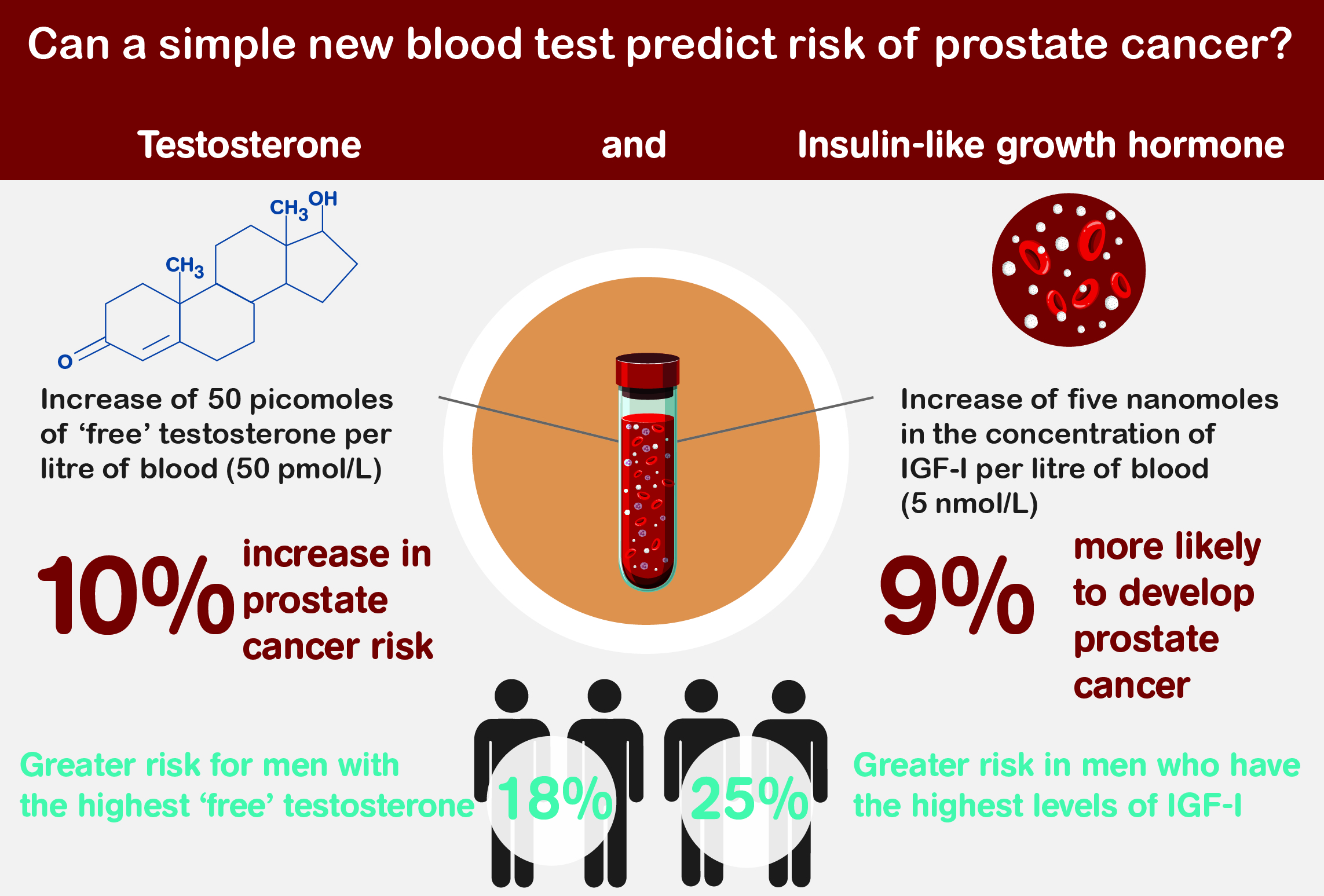High levels of two hormones in the blood raise prostate cancer risk
High levels of two hormones in the blood raise prostate cancer risk

A study of more than 200,000 men in UK Biobank has shown that levels of ‘free’ testosterone and a growth hormone in their blood makes them more likely to be diagnosed with prostate cancer.
Factors such as older age, ethnicity and family history are already known to increase a man’s risk of developing prostate cancer. But this is the first study to demonstrate strong evidence of factors that could be altered in an attempt to reduce risk.
The 200,000 male UK Biobank participants were cancer free at the beginning of the study. Researchers tested participant blood samples for testosterone and a growth hormone called insulin-like growth factor (IGF-I). They also looked for ‘free’ testosterone, which is testosterone circulating in the blood not bound to any other molecule, which can therefore have an effect in the body.
A subset of 9,000 men gave a second blood sample at a later date to help researchers account for normal hormone changes. All the men were followed for six to seven years to see if they developed prostate cancer, and in that time there were 5,412 cases and 296 deaths from the disease.
The researchers suggest that because the blood tests were taken some years before the prostate cancer developed, it is likely that the hormone levels are leading to the increased risk of prostate cancer, as opposed to the cancers leading to higher levels of the hormones. Thanks to the large size of the study, the researchers were also able to take account of other factors that can influence cancer risk, including body size, socioeconomic status and diabetes.
"“What this research does tell us is that these two hormones could be a mechanism that links things like diet, lifestyle and body size with the risk of prostate cancer. This takes us a step closer to strategies for preventing the disease,”"Dr Ruth Travis, Oxford University.
